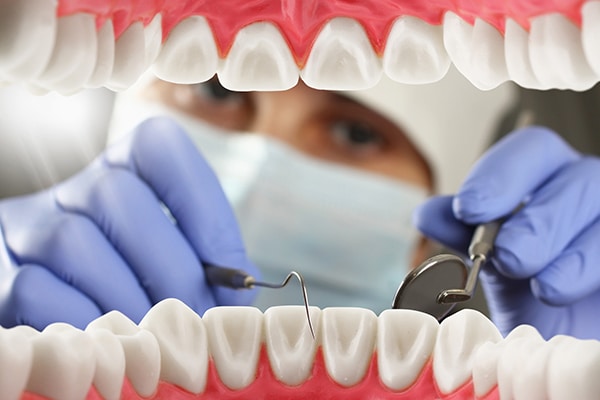Around a third of the UK adult population suffer from moderate gum disease. It is very important for dental practitioners to screen for periodontal disease. This is a key role that dental practitioners play in the early recognition and diagnosis of periodontal conditions. There are various risk factors that have been highlighted for periodontal disease including poor oral hygiene, tobacco use, diabetes, genetics, poor nutrition and stress.
Basic Periodontal Examination (BPE)
The basic periodontal examination (BPE) is a simple screening tool that is effective and efficient as an indicator of requirements for further investigation and treatment need. The basic periodontal examination should be used for screening only and should not be used for diagnosing periodontal conditions. The BPE probe is used for screening and recording but it is equally important that practitioners make a note of the appearance and texture of the gum tissues such as loss of papillae and stippling, redness and swelling as well as any exudate.
Screening involves probing of the periodontal tissues to assess the presence of bleeding on probing, plaque and calculus deposits and the depth of any periodontal pockets which may be present. Probing techniques are important to standardise and a pressure of 20-25g (equivalent to the force required to blanch a fingernail) should be used.
Various factors can influence probing depths including angulation, presence of calculus and tissue inflammation. The teeth are divided into sextants and the probe should be walked around each tooth in each sextant recording the highest score per sextant. The BPE codes are 0-4 with an * indicating furcation involvement.
Screen All New Patients for Periodontal Disease
A BPE screening for periodontal disease in adults and children should be carried out on all new patients. For patients with codes 0, 1 or 2 on a previous BPE recording the BPE should be recorded at every routine examination. For patients with BPE codes of 3 or 4, more detailed six-point pocket charting is required.





